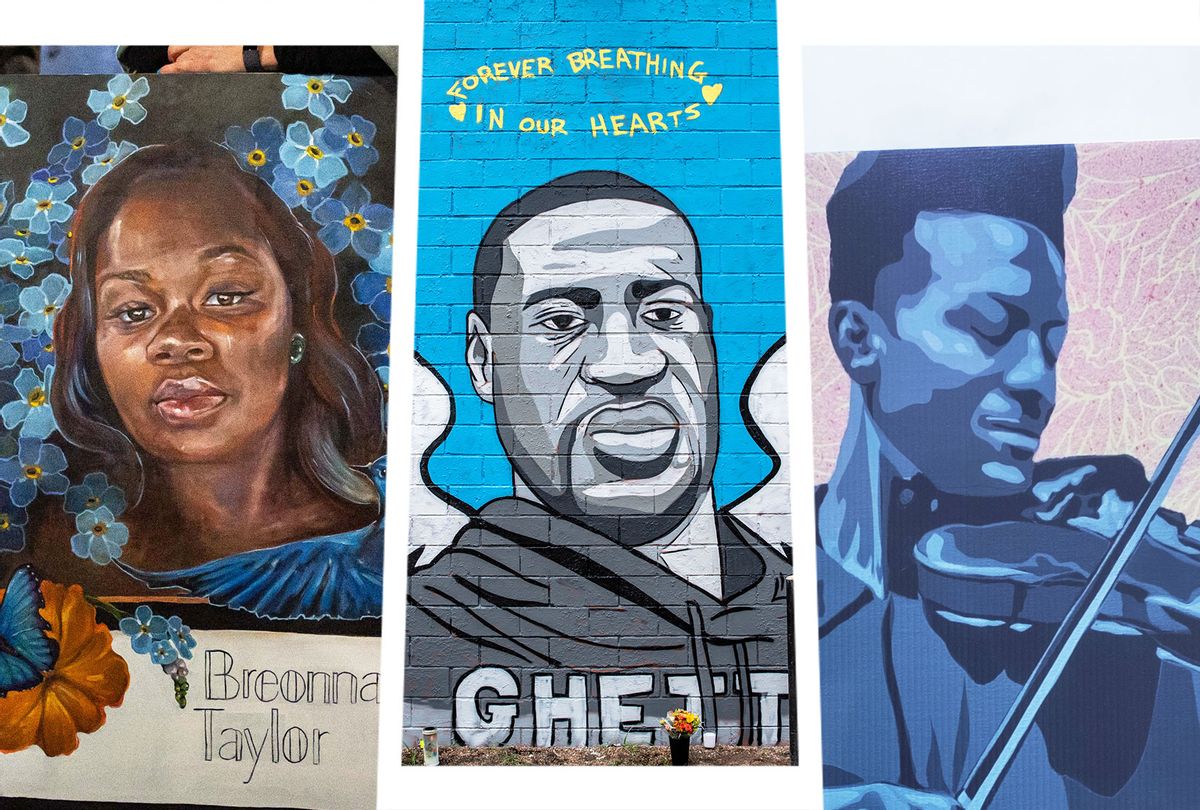Darnella Frazier, the 18-year-old woman who won an honorary Pulitzer for filming the murder of George Floyd last year, announced her uncle was killed Tuesday night after being caught up in a police chase in Minneapolis — a police chase that reportedly did not involve him.
While the details about that case remain unclear, it is, if nothing else, a reminder of one of the most important legacies of Floyd's killing — the fact that it shone a spotlight on police abuses that previously went unnoticed.
Shortly after former Minneapolis Police Officer Derek Chauvin was convicted for murdering Floyd, his brother Philonese referenced Emmett Till, an African American teenager from Chicago who was beaten and murdered while visiting rural Mississippi. There was much that separated the two homicides: Till was lynched in 1955, while Floyd was strangled under Chauvin's knee in 2020; Till's murderers were acquitted by an openly racist jury, while Floyd's murderer was convicted by diverse jurors; Till, 17, was much younger than Floyd, 46, and lived at a time when lynching was common, especially in the South.
Yet in the most important respect, Philonese Floyd was not wrong when he referred to Till as "the first George Floyd." Both murders wound up being rallying points for major social justice movements, drawing attention to the manner in which America's legal system has devalued African American lives throughout history — and continues to do so. In Floyd's case, this also helped to increase attention for other instances of the American state's violent racism.
First, an important date: May 25, 2020. That is the day when George Floyd died. The exact anniversary passed nearly two months ago, but the memory of what happened never can. Indeed, a big part of the problem is that too many stories don't get remembered by enough people.
More than two months earlier, on March 13, a 26-year-old African American woman in Louisville named Breonna Taylor was shot to death by police officers who forced their way into her apartment while investigating alleged drug dealing operations. There is no evidence that Taylor was involved in any of those operations, although one suspect was offered a plea deal by authorities if he would implicate her. Despite some successful litigation from her family, no criminal justice proceedings have occurred as a result of her death — nor does it appear that such a case will ever happen. Although Taylor's shooting occurred before Floyd's murder, the important legal decisions regarding her death occurred afterward. While many argue that justice has not been done for Taylor, the legal system's unwillingness to treat her shooting as a crime caused waved of protests across the country.
Elijah McClain died almost seven months before Taylor. The 23-year-old African American man worked as a massage therapist in the Colorado city of Aurora and was known as a multitalented musician, at one point performing on a violin for stray cats in a video that has since gone viral. He was killed by police officers as he walked home from work because a 911 caller complained that he "looked sketchy." McClain was never accused of a crime. He entered an agitated mental state when the police arrested him and a struggle ensued, during which police held him against the ground while handcuffing him, subjected him to a chokehold and gave him ketamine. He suffered from cardiac arrest en route to the hospital and died a few days later.
Some intersectional stories have also emerged. Neli Latson, for instance, was an 18-year-old African American on the autism spectrum when he was confronted by police officers in 2010. He was sitting outside of a library when an anonymous caller told authorities that he looked "suspicious" and might be armed (he was not). According to a civil rights suit filed by his mother, Latson was approached by a deputy who triggered autistic responses by making unwanted physical contact with him. The deputy was injured and Latson was sent to jail, where he was often held in solitary confinement and on one occasion Tasered and strapped to a chair. The jail has since paid him a settlement and implemented some reforms.
It is notable that Floyd also suffered from mental health issues, which both Floyd and his friends tried to explain to his arresting officers at the time.
Sometimes the stories involve law enforcement simply not acting when violence occurs against an African American, such as the Georgia police who needed to be pressured by social media activists to start charging people in the killing of 25-year-old Ahmaud Arbery, who was jogging unarmed in February 2020 when he was pursued and shot to death by three white men. The charges against his alleged murderers were filed only days before Floyd's killing, perhaps foreshadowing the wave of activism that would occur after his death.
And ometimes the stories involve police openly displaying rage with vulgar glee, as in a recently released 2019 video of Louisiana police beating and stunning 49-year-old Ronald Greene after he led them on a chase. Greene later died and the causes surrounding his death remain mysterious.
There are many other stories that could be included here. The tragic reality is that Floyd was not the first African American to be murdered by police and it is unlikely he will be the last: Michael Brown, Eric Garner, Amadou Diallo, Trayvon Martin and so many others came before him. At the same time, like Till's lynching, Floyd's murder may have pushed awareness of these events, and their shocking regularity, to another level.
One part of that has been increasing the attention to victims whose stories occurred before Chauvin murdered Floyd. This is just one way in which that Minneapolis afternoon changed the world.

Shares